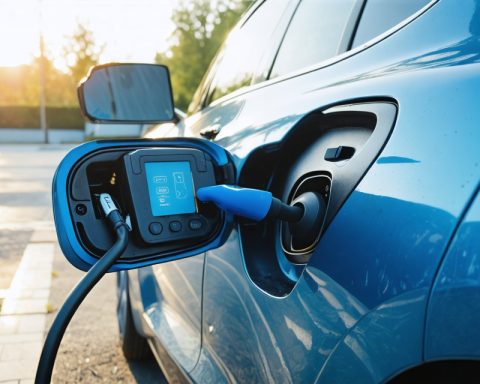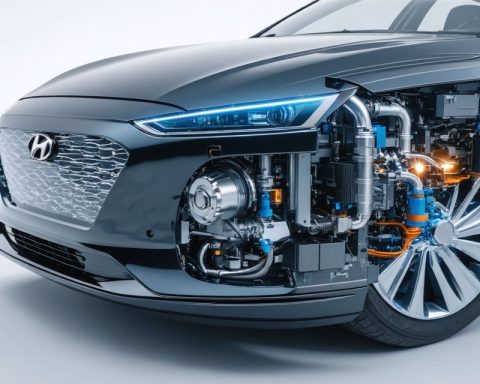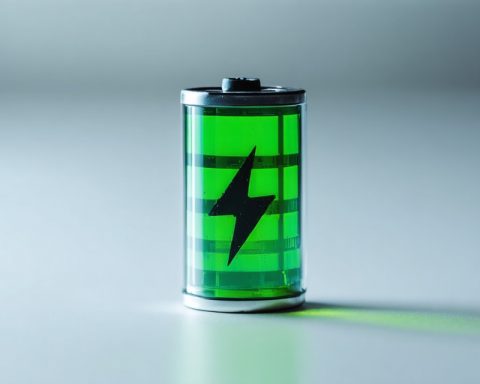- Akasol is ceasing operations in Michigan, closing plants in Warren and Hazel Park by mid-April to move to Seneca, South Carolina.
- The closure impacts 188 workers, demonstrating the volatile nature of the electric vehicle (EV) industry.
- This transition reflects Akasol’s strategy to streamline and consolidate operations under the vision of an electrified future.
- The Hazel Park location’s closure marks the end of another chapter in a historic area known for the Hazel Park Raceway.
- The EV battery industry is characterized by intense competition, scale, and the need for relentless innovation.
- The key lesson in e-mobility: adaptability and scalability are essential for survival and progress.
The rumble of industry in Michigan faces transformation, as Akasol, a celebrated player in the electric vehicle (EV) battery arena, prepares to conclude its operations in the state. By mid-April, two bustling plants in the cities of Warren and Hazel Park will fall silent, relocating their energies to the greener meadows of Seneca, South Carolina. This decision affects the livelihood of 188 workers, marking another pivot point in the volatile landscape of the EV industry.
This shift underscores the relentless quest for growth, urging Akasol and its parent company, BorgWarner Inc., to streamline and consolidate their operations. At their core lies the belief in an electrified future where innovative mobility solutions dominate the roads.
Yet the journey from Hazel Park narrates more than just numbers and new beginnings. Built from the ashes of the historic Hazel Park Raceway—a beacon since 1949 until its closure in 2018—Akasol opened with promise. But now, its doors close, another chapter in a series of market dynamics often marked by high risks and shifting breaths.
Echoing through the industry, the sentiment remains unchanged: the EV battery sector is a battlefield of scale, relentless research, and uneasy returns on investment. Corporations must align swiftly with changing currents or face the inevitable reconsolidation.
In a world frantically adopting e-mobility, the lesson is clear: adaptability and scale are not mere strategies—they are lifelines. As Akasol transitions, the rhythm of progress beats on, fueling the imagination and ambition of industries worldwide.
Akasol’s Michigan Exit: What’s Next for the EV Battery Industry?
How-To Steps & Life Hacks: Navigating Corporate Transitions in the EV Industry
1. Evaluate Supply Chain: Companies must critically assess their current supply chains to enhance efficiency. Consider partnerships with regional suppliers to reduce logistics costs.
2. Invest in R&D: Allocate resources to research and development to stay ahead in technology and innovation. Develop sustainable, high-efficiency batteries.
3. Focus on Talent Management: During transitions, it’s essential to communicate transparently with employees. Consider retention packages and re-skilling programs.
4. Community Engagement: Actively engage with local communities to address the impacts of closures. Partnerships with local governments for re-development projects offer potential benefits.
Real-World Use Cases: Adapting to Market Shifts
– Company Consolidation: As seen with Akasol’s move, companies often consolidate operations for strategic advantages, like lower operational costs and proximity to resources.
– Technology Upgrades: Adoption of advanced manufacturing technologies in new locations can result in increased efficiency and output.
Market Forecasts & Industry Trends
The global EV battery market is projected to grow significantly, with estimates suggesting a rise from $27.3 billion in 2021 to $127 billion by 2027 (source: MarketsandMarkets). Key trends include the development of solid-state batteries, increasing battery capacity, and sustainability initiatives.
Reviews & Comparisons: The Competitor Landscape
Significant competitors in this sector include Tesla, Panasonic, LG Chem, and CATL. Each is pushing for larger battery capacities and higher efficiency. Comparatively, Akasol focuses on flexible, high-performance battery solutions suitable for commercial applications.
Controversies & Limitations
– Environmental Concerns: Battery production can raise environmental issues, focusing on mining raw materials and waste management. Sustainable practices and recycling technologies are areas of growth.
– Employment Impacts: Factory closures like Akasol’s highlight the human impact of shifting business strategies.
Features, Specs & Pricing
While specific details regarding Akasol’s battery specifications are proprietary, their products generally emphasize fast charging and high energy density, catering mainly to buses, trucks, and industrial applications.
Security & Sustainability
Security concerns around EV batteries revolve around thermal management to prevent overheating or fires. Sustainability is addressed by focusing on the circular economy and responsible sourcing of materials like nickel and cobalt.
Insights & Predictions
Akasol’s strategic move indicates a trend towards consolidating operations in regions with favorable business conditions, like South Carolina. This can result in legislative incentives and better geographical positioning. The EV industry’s drive towards efficiency and cost-effectiveness will continue to influence such decisions.
Tutorials & Compatibility
– Battery Integration: Manufacturers often work closely with vehicle producers to ensure battery compatibility and integration with EV systems.
Pros & Cons Overview
Pros:
– Increased Efficiency: Consolidation can lead to more streamlined operations.
– Growth Opportunities: New locations offer untapped regional markets.
Cons:
– Job Losses: Plant closures drastically affect local employment.
– Community Impact: Shifts can harm local economies previously dependent on these facilities.
Actionable Recommendations
– Stay Informed: Regularly monitor industry trends and competitor strategies to anticipate market shifts.
– Invest in Education: Focus on developing skills in energy management and sustainable technologies.
– Engage in Sustainability: Adopting green policies can improve brand credibility and future-proof businesses.
For more insights into the EV industry and sustainable energy solutions, visit borgwarner.com and marketsandmarkets.com.







